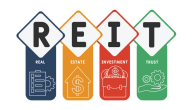
Buying a Business: Riding the Wave of the Silver Tsunami
Are you considering buying a business? With the baby boomer generation approaching retirement age, the time is ripe for aspiring entrepreneurs to capitalize on a phenomenon known as the “silver tsunami.”
What is the Silver Tsunami?
The silver tsunami refers to the impending wave of business owners from the baby boomer generation (those born between 1946 and 1964) who are nearing retirement age. According to statistics, baby boomers own a staggering number of businesses across various industries, and many of them lack a concrete succession plan. As these owners approach their golden years, they’ll be looking to sell their life’s work, presenting a unique opportunity for potential buyers.
Why Buy an Existing Business?
Instead of starting from scratch, buying an established business can offer several advantages:
A Proven Business Model
One of the biggest advantages of buying a business is that you’re essentially purchasing a proven business model. Unlike starting a new venture from scratch, an existing company has already gone through the critical stages of ideation, market testing, and initial growth.
Here’s why a proven business model is so valuable:
- Validated Product or Service: The business has an established product or service offering that has demonstrated demand in the market. Customers are already familiar with and actively purchasing what the company sells.
- Established Operations: Key operational processes, systems, and workflows are already in place. This includes things like supply chains, production methods, sales and marketing strategies, and customer service protocols. While refinements may be needed, you don’t have to build everything from the ground up.
- Existing Customer Base: The company likely has a loyal customer base that has been cultivated over years of operation. This recurring revenue stream provides immediate cash flow and a foundation for growth.
- Brand Equity: Depending on the business, it may have an established brand name with recognition and goodwill in the market. This brand equity can provide a competitive advantage and open doors for expansion.
- Historical Data: With an existing business, you’ll have access to years’ worth of financial statements, sales data, customer analytics, and other records. This treasure trove of information can guide decision-making and strategy.
While a proven model doesn’t guarantee success under new ownership, it significantly decreases the risk compared to an unproven startup idea. You can analyze what has worked well and what needs improvement, then implement your vision while capitalizing on the company’s established assets and market position.
However, be sure to thoroughly vet the business during the due diligence process. Understand why the current owners are selling, assess the competitive landscape, and ensure the model is truly sustainable before moving forward with the acquisition.
Existing Assets and Infrastructure
When starting a business from scratch, one of the biggest initial hurdles is accumulating all the necessary assets and building out the required infrastructure. This process can be extremely capital-intensive and time-consuming. However, when buying an existing company, you instantly inherit valuable assets and an operational infrastructure.
Physical Assets:
Depending on the nature of the business, you may acquire physical assets such as:
- Production Equipment and Machinery
- Vehicles (trucks, vans, company cars)
- Office Furniture and Fixtures
- Computers/IT Infrastructure
- Raw Materials and Inventory
Instead of having to source and purchase all these items brand new, the sale gives you ownership of assets that are already paid for and generating value.
Facilities:
An existing business also likely has an established facility or real estate like an office, retail space, warehouse, factory, etc. This eliminates the need to find and build out a new location from the ground up. While some renovations may be desired, the basic structure is already operational.
Proprietary Assets:
You may also gain ownership of valuable proprietary assets like:
- Intellectual Property (patents, trademarks, etc.)
- Proprietary Software/Technology
- Documented Processes/Operation Manuals
- Client Lists and Lead Databases
These types of assets can give the acquired business a competitive advantage that would be difficult and costly to replicate.
Infrastructure Foundation:
Well-established companies have a framework of core business infrastructure already developed, such as:
- IT Systems and Networks
- HR Policies and Procedures
- Accounting and Payroll Setup
- Banking and Vendor Relationships
- Distribution Channels and Supply Chains
While this infrastructure may need optimization, the basic foundations are in place to build upon.
By avoiding the substantial capital outlays required for assets, facilities, and infrastructure setup, buyers can allocate more resources toward growth initiatives. This inherent value embedded in an existing business is a major motivator for acquisitions.
Trained Staff
One of the most valuable assets you acquire when purchasing an established company is the existing workforce. Having an experienced team of employees already in place provides several key advantages over starting fresh with all new hires.
Institutional Knowledge
Long-tenured staff members possess deep institutional knowledge about the business – how it operates, who the key customers/vendors are, what processes work well, and what issues need improvement. This institutional memory is invaluable during the transition phase under new ownership. Tenured employees can provide insights and context that an outsider wouldn’t have.
Minimal Ramp-Up Time for Buying a Business
With a trained workforce, there is minimal time needed for onboarding and getting employees up to speed on their roles. In a startup situation, you’d have to devise full training programs across all functions. But an existing team can continue operating with their experience and expertise from day one under your ownership.
Retention of Talent
Acquisitions often come with risks of talent leaving during the transition. However, by retaining the core experienced staff initially, you avoid a debilitating brain drain. Their continued presence maintains important relationships, skills, and momentum as you evolve the business.
Specialized Expertise
Depending on the industry, you may inherit employees with highly specialized skills and certifications. This could include mechanics, engineers, programmers, pilots, etc. Assembling a team with these precise technical capabilities could take years if building from scratch.
Lower Training Costs
Having an experienced core team in place allows you to significantly reduce hiring and training costs compared to attempting to recruit and develop an entirely new workforce simultaneously. Those savings can be reinvested into growing the business.
While there will likely be some natural employee turnover post-acquisition, a well-structured retention plan and growth opportunities can boost motivation among the existing staff. By properly leveraging their knowledge and capabilities, you’ll have a much smoother transition into your new role as the owner.
Financing Opportunities
One of the biggest hurdles aspiring entrepreneurs face when starting a new business is securing adequate capital and financing. Lenders and investors often view startups as high-risk propositions without proven track records. However, an established company with a history of revenues and profits can provide more compelling financing opportunities.
Debt Financing in Buying a Business
When you purchase an existing business, debt financing in the form of loans becomes much more accessible compared to a startup. Lenders can evaluate the company’s assets, cash flow history, and financial statements to assess risk and determine loan amounts, interest rates, and repayment schedules.
A few common debt financing routes include:
Business Acquisition Loans: These loans are specifically designed to fund the purchase of another company’s assets or equity shares.
SBA Loans: The U.S. Small Business Administration guarantees certain bank loans, increasing access to capital for qualified small business buyers.
Asset-Based Lending: Lenders may extend lines of credit or loans secured by the acquired company’s assets like accounts receivable, inventory, or equipment.
By leveraging debt intelligently, you can access capital without immediately giving up equity and ownership stake in the acquired business.
Asset-Based Lending: Lenders may extend lines of credit or loans secured by the acquired company’s assets like accounts receivable, inventory, or equipment.
Seller Financing: In some cases, sellers are willing to finance a portion of the purchase price by holding a note that the buyer repays over time. This can facilitate a deal when the buyer lacks sufficient upfront capital.
Equity Financing: An existing profitable business also opens the door to potential equity investors who exchange capital for an ownership stake. Some common sources include:
Angel Investors: High-net-worth individuals who provide seed funding could be enticed by an established business model.
Venture Capital: VC firms may be more inclined to invest in a company that has moved beyond the concept stage and already gained market traction.
Private Equity Groups: These firms are actively seeking mature companies and business acquisitions to add to their investment portfolios.
By demonstrating a proven track record and forecasting future growth potential, buyers can make a strong case to these equity sources for an influx of capital.
Overall, financing capacity tends to grow tremendously when you pursue an already-operational business versus trying to fund a risky startup concept. As long as you can illustrate the existing value and upside, you’ll find more pathways to raising the needed capital.
Here is a table comparing the benefits of buying an existing business versus starting a new business (startup):
| Benefit | Buying an Existing Business | Starting a New Business (Startup) |
|---|---|---|
| Proven Business Model | Get an established product/service with existing customer base and market demand. | Need to validate idea, test product/service, and build initial customer base from scratch. |
| Assets & Infrastructure | Acquire valuable assets like equipment, facilities, technology, intellectual property etc. already in place. | Must invest heavily upfront to acquire all assets and build out operational infrastructure. |
| Workforce | Trained and experienced employees with industry knowledge and skills. | Need to hire and train entire workforce, which can be costly and time-consuming. |
| Revenue Stream | Immediate revenue and cash flow from operations on day one under new ownership. | Typically a long ramp-up period before becoming profitable and self-sustaining. |
| Brand Recognition | Potentially get an established brand name with existing market awareness and goodwill. | Need to build brand identity and awareness from the ground up. |
| Financing | Lenders view existing businesses as less risky, enabling better access to debt financing. | Startups often struggle to obtain sufficient startup capital from lenders or investors. |
| Supplier & Vendor Relationships | Take over existing relationships with suppliers, vendors, distribution channels etc. | Have to establish new relationships with no prior reputation or history. |
| Historical Data | Get access to years of operational data, financials, analytics to guide strategy. | Start with a clean slate and limited data to make decisions. |
| Time to Revenue | Can be profitable relatively quickly if operations are streamlined under new management. | Typically a long lead time of 1-3 years before startups start making a profit. |
While buying an existing business requires more upfront capital, it offers reduced risk, established value, and a shortened time to positive cash flow compared to starting from scratch. Startups require more initial investment of time and money but allow for more autonomy in building something new.
The Silver Tsunami Opportunity
As baby boomers retire, they’ll be seeking buyers for their businesses. This demographic shift represents a unique opportunity for entrepreneurs to acquire well-established companies at potentially favorable terms.
However, navigating the purchase of an existing business can be complex. It’s crucial to conduct thorough due diligence, assess the company’s financial health, evaluate the competitive landscape, and negotiate a fair price.
Seeking Professional Guidance in Buying a Business
Consider enlisting the help of professionals such as business brokers, attorneys, and accountants to guide you through the process. Their expertise can be invaluable in identifying suitable businesses, negotiating favorable terms, and ensuring a smooth transition.
The silver tsunami presents a compelling opportunity for those seeking to become business owners. By capitalizing on this demographic shift and following best practices, you can increase your chances of successfully acquiring and growing an established enterprise.
Here are some helpful websites that discuss the topic of buying an existing business:
- BizBuySell (bizbuysell.com)
This is one of the largest online marketplaces for buying and selling businesses. Their website has extensive resources, guides, and tools for those looking to acquire a business. You can search listings, get valuation estimates, and read articles covering all aspects of the buying process. - Entrepreneur (entrepreneur.com/buy-a-business)
This well-known entrepreneurship publication has a dedicated section on their website for buying a business. It includes advice articles, insights from experts, tips on financing acquisitions, and a directory of businesses for sale. - ExitPromise (exitpromise.com)
This site aims to connect business buyers and sellers. It offers educational content like webinars and e-books specifically on the process of purchasing an existing small business. - Inc. (inc.com/start-a-business)
The “Start a Business” section on Inc.com has subsections covering business acquisitions, with articles from entrepreneurs sharing their buying experiences and insights. - SBA.gov (sba.gov)
The U.S. Small Business Administration website contains guides and information on financing options like SBA loans for those interested in buying a business. - SCORE (score.org)
This non-profit organization dedicated to helping small businesses offers free mentoring services, including guidance on acquiring an existing company.
These websites provide a wealth of advice, listings, tools and resources to help prospective buyers navigate the process of purchasing an established business successfully.










Leave a Reply